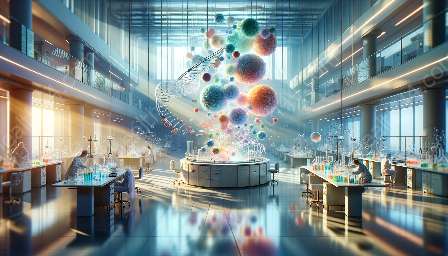Proteins are essential macromolecules that play a crucial role in biochemistry, health education, and medical training. They are the building blocks of life, with diverse functions in the human body, and understanding their structure, function, and importance is vital for a thorough understanding of biological processes.
The Structure of Proteins
Proteins are complex molecules made up of amino acids, which are linked together to form long chains. The unique sequence of amino acids in a protein determines its structure and function. There are four levels of protein structure: primary, secondary, tertiary, and quaternary. The primary structure refers to the linear sequence of amino acids, while the secondary structure involves the folding of the amino acid chain into alpha helices and beta sheets. Tertiary structure relates to the three-dimensional arrangement of the protein, while quaternary structure involves the association of multiple protein subunits to form a functional protein complex.
The Function of Proteins
Proteins have a wide range of functions in the human body. They act as enzymes, catalysts that promote chemical reactions in the body. Additionally, proteins serve as structural components, providing support and strength to cells and tissues. Proteins also play a role in cell signaling, immune response, and transportation of molecules within the body. Hemoglobin, for example, is a protein that transports oxygen in the blood. Furthermore, proteins can function as hormones, gene regulators, and antibodies, highlighting their diverse roles in maintaining health and homeostasis.
The Importance of Proteins in Biochemistry
In biochemistry, the study of proteins is fundamental to understanding cellular processes, metabolic pathways, and the molecular basis of diseases. The intricate interplay of proteins in cellular functions, such as DNA replication, transcription, and translation, underscores their significance in biochemistry. Moreover, biochemical techniques, such as protein purification, characterization, and analysis, are essential for studying the structure and function of proteins, paving the way for medical advancements and therapeutic interventions.
Proteins in Health Education and Medical Training
Health education and medical training emphasize the importance of proteins in maintaining health and preventing diseases. Educating individuals about the essential role of proteins in nutrition, exercise, and overall well-being is crucial for promoting a healthy lifestyle. Medical professionals, including doctors, nurses, and pharmacists, require in-depth knowledge of proteins to diagnose and treat various medical conditions. Understanding the molecular mechanisms of protein function enables healthcare providers to develop targeted therapies and personalized treatment strategies for patients.
Conclusion
Proteins are integral to the functioning of living organisms, and their significance extends across multiple disciplines, including biochemistry, health education, and medical training. By delving into the intricacies of protein structure and function, we gain valuable insights into the molecular basis of life and disease, paving the way for innovations in medicine and healthcare.


